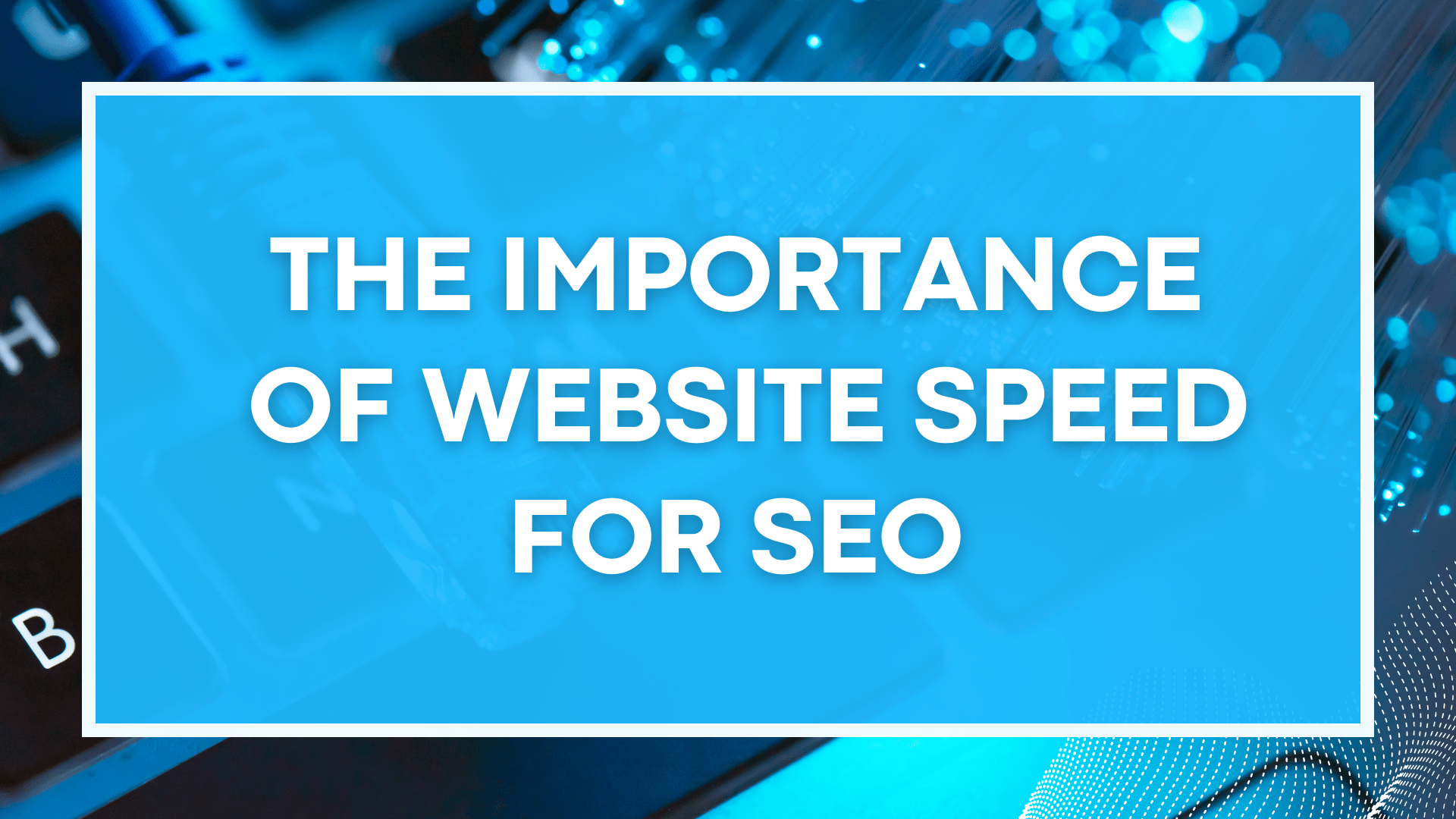The Importance of Website Speed for SEO

In today’s digital age, website speed has become an increasingly important factor in search engine optimization (SEO). In fact, Google has indicated that site speed is one of the key signals used by its algorithm to rank pages in search results
Why Website Speed Matters for SEO?
1. User Experience
A fast website provides a better user experience, which can lead to higher engagement and more conversions. Slow-loading pages can frustrate users and cause them to abandon your website, resulting in a higher bounce rate. A high bounce rate can signal to search engines that your website is not providing value to users, which can negatively impact your rankings.
2. Mobile Optimization
With the increasing use of mobile devices, website speed has become even more critical. Mobile users expect fast load times, and Google has prioritized mobile-first indexing. This means that Google now uses the mobile version of a website as the primary index for ranking purposes. Slow-loading mobile pages can lead to poor user experience and lower rankings.
3. Crawling and Indexing
Search engines use crawlers to scan and index web pages. Slow-loading pages can make it difficult for crawlers to access and index your content, leading to lower visibility in search results. Additionally, slow-loading pages can also impact the crawl budget of your website, which is the number of pages a search engine can crawl and index on your site.
Want hassle-free website maintenance?
Discover the benefits of Webify – your reliable partner for keeping your website secure, optimized, and up-to-date. Visit Webify,cc now to elevate your website’s performance and user experience.”
Case Study
To demonstrate the impact of website speed on SEO, let’s look at a real case study. In 2017, Backlinko conducted a study of over one million Google search results to identify key factors that impact rankings. One of the key findings was that faster-loading pages tended to rank higher than slower-loading pages.
To further illustrate this point, Akamai conducted a study that found that a one-second delay in page load time can result in a 7% reduction in conversions. Additionally, Google has indicated that sites that load within five seconds on mobile devices can earn up to two times more mobile ad revenue than sites that take longer than five seconds to load.
Conclusion
Website speed is a critical factor in SEO, as it impacts user experience, mobile optimization, crawling, and indexing. A slow website can lead to lower rankings, higher bounce rates, and lower conversions. To improve your website’s speed, you can use tools like Google PageSpeed Insights or GTmetrix to identify areas for improvement. Additionally, optimizing images, reducing HTTP requests, and using a content delivery network (CDN) can also improve your website’s speed. By prioritizing website speed, you can improve your SEO and provide a better user experience for your visitors.
GET IN TOUCH
